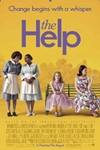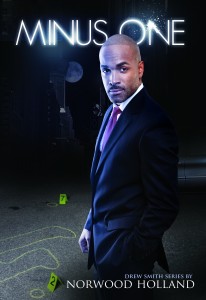On Boycotting The Help
August 10, 2011
 There are grumblings of a boycott of the motion picture to be released this week. A number of African American writers and readers are in awe and miffed by the success of Kathryn Stockett’s The Help; miffed because a white author tells an essentially African American story from a black perspective using a black voice. They are in awe because the book achieved an author’s dream of success with a best seller and an accompanying movie deal, but there is more, a back-story for which the author is being rewarded with a law suit.
There are grumblings of a boycott of the motion picture to be released this week. A number of African American writers and readers are in awe and miffed by the success of Kathryn Stockett’s The Help; miffed because a white author tells an essentially African American story from a black perspective using a black voice. They are in awe because the book achieved an author’s dream of success with a best seller and an accompanying movie deal, but there is more, a back-story for which the author is being rewarded with a law suit.
The plaintiff Ablene Cooper, a 60 year-old woman who as recent as February worked for the Stocketts as a maid, Ms. Cooper argues that one of the book’s principal characters, Aibileen Clark is an unpermitted appropriation of her name and image, which she finds emotionally distressing. Cooper alleges Stockett promised not to use her name and likeness. How much Cooper contributed to the overall story remains unclear. There is legal precedence for Cooper’s claims.
Set in Jackson Mississippi the narrator Skeeter a white female journalism graduate relies on the maids’ housekeeping skills and knowledge to land a job as the newspaper’s housekeeping columnist, a subject of which she knows nothing. Talk about art imitating life, there are far too many similarities between the principal character, Aibileen Clark and Ablene Cooper right down to the gold tooth and the death of a child.
Whites taking and profiting from the stories and music of black folks misrepresenting their source and authorship has been a long standing practice. We recently discovered how Alan Lomax appropriated research of Black scholar John W Work, Lomax’s conduit to pioneering blues artists like Muddy Waters and Son House. Joel Chandler Harris profited from his Uncle Remus stories collected from Southern Blacks. Not to mention how young Elvis Presley sneaked into black churches and honky-tonks immersing himself into the sounds and rhythms he would later grow to imitate. There are hundreds if not thousands of stories of how African-American artistic expression has been misappropriated for the benefits of whites.
Given the negative evaluations of black culture and community coming from the larger white-dominated society this seems to be a part of our legacy where there is white privilege and limited opportunities for disadvantaged minorities to tell their own stories.
My only criticism is Stockett’s initial use of dialect which the author seems to abandon as her story progresses. Having spent some time in Jackson Mississippi I never noticed such dialect. Overall, I believe it is an important story that should be told. And the motion picture does provide opportunities for African American actors. I’m reminded of Hattie McDaniel’s declaration “I’ve rather play a maid than be one.” We take the bitter with the sweet. I wish the author well with lucrative rights and royalties and Ms. Cooper an even bigger settlement.
As for our cultural contributions I’m hopeful for the day when African-American writers and filmmakers in greater numbers will dazzle audiences with our remarkable stories.
I read The Help but won’t be in any theatre lines–not intentionally boycotting just waiting for the Netflix delivery.





